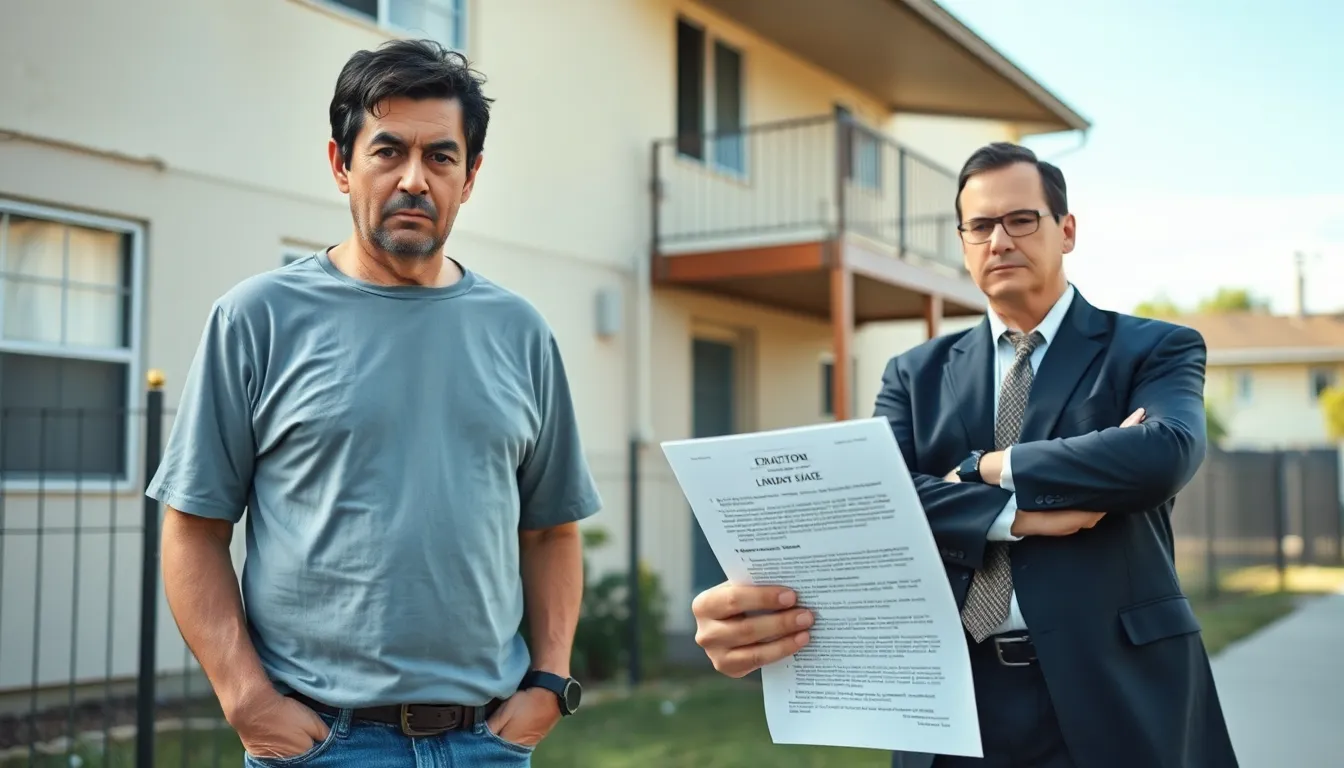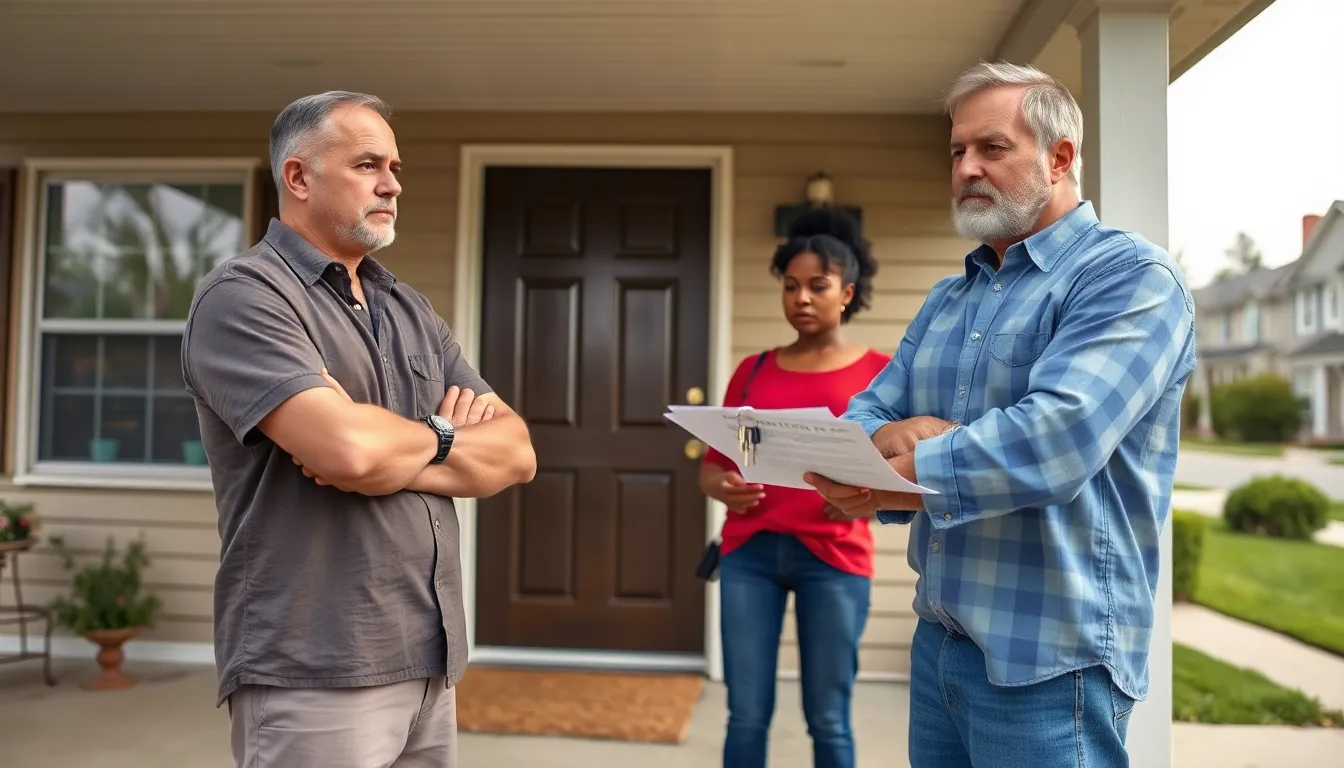Tenant complaints can significantly impact the relationship between landlords and renters. When issues arise, they often stem from maintenance problems, noise disturbances, or safety concerns. Understanding these complaints is crucial for creating a harmonious living environment and ensuring tenant satisfaction.
By addressing tenant grievances promptly and effectively, landlords can foster trust and enhance their reputation. Ignoring these issues not only leads to tenant dissatisfaction but can also result in higher turnover rates and potential legal complications. This article delves into common tenant complaints, their implications, and strategies for landlords to manage them effectively.
Table of Contents
ToggleUnderstanding Tenant Complaints
Tenant complaints represent key issues expressing dissatisfaction with rental properties. Grasping these complaints facilitates better landlord-tenant relationships and promotes tenant retention.
Common Types of Tenant Complaints
Common tenant complaints typically include:
- Maintenance Problems: Issues such as leaks, faulty heating, or broken appliances require immediate attention. Delays can cause frustration and impact tenant comfort.
- Noise Disturbances: Excessive noise from neighbors or common areas disrupts the living environment. Addressing these concerns promptly helps maintain peace and satisfaction.
- Safety Concerns: Inadequate lighting, broken locks, or malfunctioning smoke detectors create safety hazards. Tenants expect a secure living space, making safety complaints critical to resolve.
- Poor Communication: Lack of responsiveness from landlords regarding queries or complaints breeds dissatisfaction. Clear communication channels enhance tenant trust and confidence.
- Pest Infestations: Unresolved pest issues can lead to health concerns. Timely pest control measures demonstrate a landlord’s commitment to a healthy living environment.
The Impact of Tenant Complaints on Landlords
- Reputation: Negative reviews from dissatisfied tenants can harm a landlord’s reputation. Addressing issues quickly fosters positive relationships and enhances credibility.
- Turnover Rates: High tenant turnover can indicate unresolved complaints. Lower turnover rates increase rental income stability and reduce advertising costs for new tenants.
- Legal Issues: Persisting complaints may lead to legal disputes. Proper management of tenant issues minimizes the risk of lawsuits and ensures compliance with housing regulations.
- Operational Costs: Ignoring complaints often results in larger repair costs later. Proactive maintenance can lead to lower operational expenses over time.
- Tenant Satisfaction: High levels of tenant satisfaction stem from effective complaint resolution. Satisfied tenants are more likely to renew leases and recommend properties to others.
Causes of Tenant Complaints

Tenant complaints often stem from various issues that affect their living experience. Understanding these causes can help landlords address problems proactively, improving tenant satisfaction and retention.
Maintenance Issues
Maintenance issues frequently lead to tenant complaints. Examples include leaky faucets, broken appliances, and heating or cooling failures. Timely repairs are crucial; neglecting these problems can result in further damage and increased repair costs. Regular property inspections can identify maintenance needs before they escalate.
Neighbors and Noise Complaints
Neighbors’ behavior significantly affects tenant satisfaction. Noise complaints arise from loud music, barking dogs, or late-night gatherings. Such disturbances disrupt daily life and create tension among residents. Establishing clear noise policies and fostering open communication can help mitigate these complaints.
Safety and Security Concerns
Safety and security concerns rank high among tenant complaints. Issues like inadequate lighting, malfunctioning locks, or the absence of security measures contribute to feelings of vulnerability. Implementing security enhancements, such as better lighting and surveillance systems, can alleviate these concerns and promote a sense of safety for all tenants.
Addressing Tenant Complaints
Addressing tenant complaints requires a proactive approach. Landlords must implement effective communication strategies and ensure timely responses to maintain a positive relationship with tenants.
Effective Communication Strategies
- Establish open channels: Encourage tenants to express concerns through various channels, such as email, phone, or an online portal. This accessibility fosters an environment where tenants feel comfortable voicing their issues.
- Practice active listening: Actively listen to tenant concerns without interruptions. This technique demonstrates respect and validates their feelings.
- Provide clear information: Offer clear, concise information regarding procedures for submitting complaints, and maintain transparency about the process and expected timelines for resolution.
- Follow up regularly: Regular follow-ups show tenants their concerns matter. Providing updates on the status of their complaints reaffirms commitment to resolving issues.
- Document interactions: Keep detailed records of all tenant communications. Documentation aids in tracking complaints and helps identify patterns that may require systemic adjustments.
The Importance of Timely Responses
- Builds trust: Responding promptly to tenant complaints builds trust within the landlord-tenant relationship. Timely action shows tenants that their concerns receive priority and consideration.
- Reduces escalation: Quick responses prevent minor issues from escalating into significant problems. Addressing complaints early reduces future repair costs and potential legal issues.
- Enhances tenant satisfaction: Solutions provided in a timely manner positively affect tenant satisfaction. Satisfied tenants are more likely to renew leases and refer others to the property.
- Improves reputation: Consistent, timely responses enhance the landlord’s reputation in the rental market. This positive perception attracts quality tenants and reduces turnover rates.
- Streamlines operations: Efficient handling of complaints streamlines property management operations. It allows landlords to allocate resources effectively and improve overall tenant experience.
Legal Considerations
Understanding legal considerations regarding tenant complaints is crucial for both landlords and tenants. This section explores tenant rights and responsibilities, along with landlord obligations, to facilitate effective issue resolution.
Tenant Rights and Responsibilities
Tenants possess specific rights under residential tenancy laws that vary by jurisdiction. Common rights include:
- Right to Habitability: Tenants have the right to live in a safe, clean environment, where essential services like heat, water, and electricity function properly.
- Right to Privacy: Tenants maintain the right to privacy within their homes. Landlords must provide notice before entering the premises.
- Right to Repairs: Tenants can request timely repairs for maintenance issues, and landlords must address significant problems that affect livability.
- Right to Fair Treatment: Tenants must not face discrimination based on race, gender, religion, or other protected characteristics.
- Responsibility for Rent Payments: Tenants must pay rent on time as stipulated in the lease agreement, regardless of maintenance complaints.
Understanding these rights and responsibilities helps tenants advocate for themselves while fostering respectful landlord-tenant relationships.
Landlord Obligations
Landlords hold distinct obligations to ensure legal compliance and foster a positive living environment. Key obligations include:
- Maintaining the Rental Property: Landlords must keep properties in good repair, addressing issues such as plumbing, heating, and safety concerns promptly.
- Providing Written Lease Agreements: Landlords must offer clear, written lease agreements that outline terms, conditions, and tenant rights.
- Responding to Complaints: Landlords must acknowledge and respond to tenant complaints quickly, facilitating resolution before escalations occur.
- Ensuring Habitability: Landlords must ensure that properties meet local health and safety codes, providing a secure environment for tenants.
- Maintain Records: Landlords must keep accurate records of communication and repairs, supporting transparency and accountability.
Compliance with these obligations enhances tenant satisfaction and helps avoid potential legal disputes.
Addressing tenant complaints effectively is essential for maintaining a positive landlord-tenant relationship. By prioritizing open communication and prompt resolutions landlords can not only enhance tenant satisfaction but also protect their reputation. Understanding the specific needs and concerns of tenants fosters a sense of community and stability within rental properties.
Proactive management of complaints leads to reduced turnover rates and minimizes legal risks. Ultimately a commitment to addressing tenant grievances contributes to a thriving rental environment where both landlords and tenants can coexist harmoniously.








